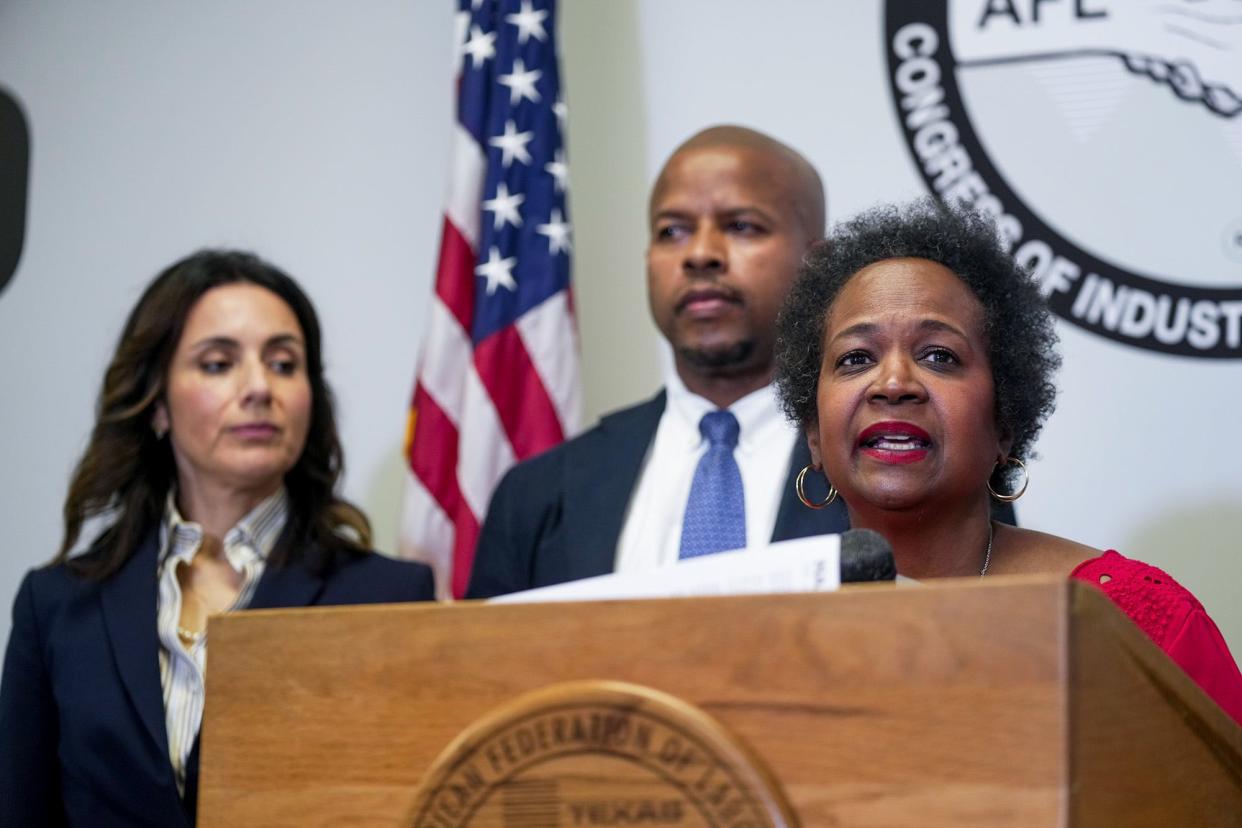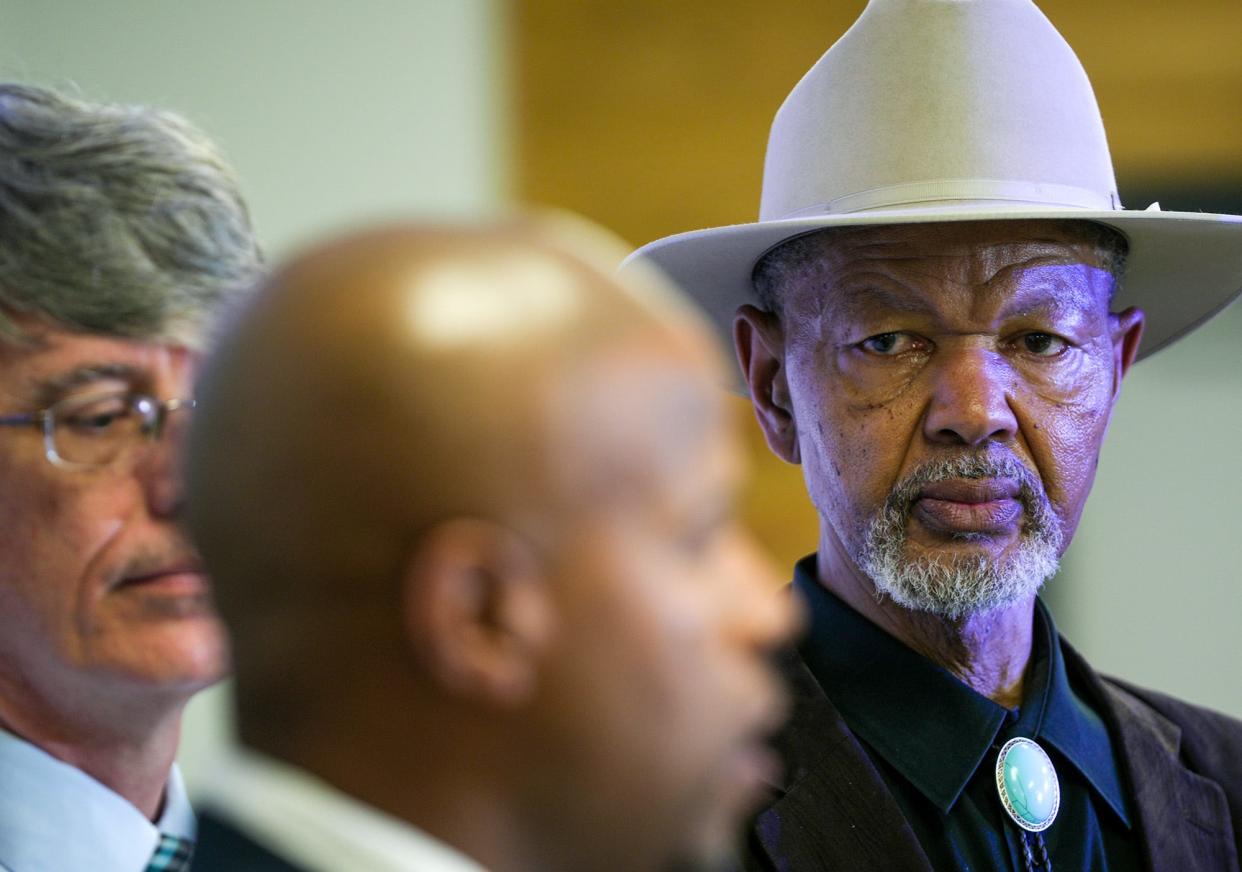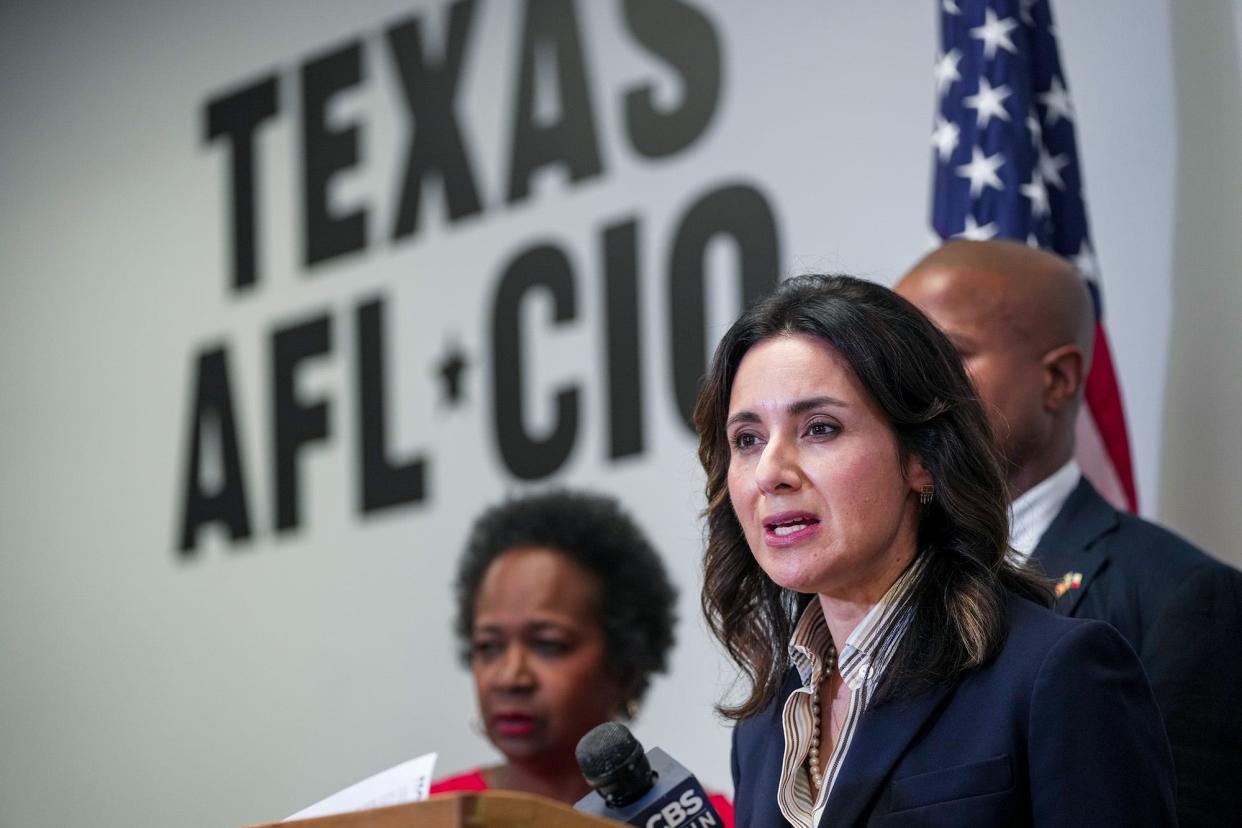'This was a breach of trust': TX NAACP confirms 66 former UT DEI jobs lost at UT April 2

Lawmakers from the Texas Legislative Black Caucus and rights advocates are condemning the layoffs earlier this month of more than 60 University of Texasstaff members, who before January had worked in DEI-related positions, as an overcompliance with the state's ban on diversity, equity and inclusion offices at public universities.
Senate Bill 17, which prohibits public institutions of higher education from having DEI offices and initiatives, went into effect Jan. 1. Before then, UT announced it was taking measures to comply with the law, such as cutting DEI-related programs and scholarships; requiring student and faculty groups sponsored by the school to either comply with SB 17 or lose their funding; and closing the Multicultural Engagement Center, which housed six UT-sponsored student groups.
On April 2, UT announced it was closing its Division of Campus and Community Engagement, which previously was the Division of Diversity and Community Engagement, and laid off employees who previously had served in DEI-related jobs.
Gary Bledsoe, president of the Texas chapter of the NAACP, described the April layoffs and closing of the Division of Campus and Community Engagement as a “second cut” of implementation, since SB 17 had required all the institutions to assert their compliance by Jan. 1.
Bledsoe, at a news conference with other leaders Wednesday, said Texas NAACP has a list of 66 confirmed names of people who UT laid off April 2, but he said the total number of layoffs could be significantly higher. UT has not announced how many employees it laid off, and the American-Statesman has confirmed with people with close knowledge of the layoffs that at least 60 employees were axed.
“These were not DEI employees,” said Legislative Black Caucus Chair Rep. Ron Reynolds, D-Missouri City. "This was a breach of trust.”
More: 'We did not see this coming': UT staff, students react to layoffs, DCCE closure after SB17
The NAACP also said it confirmed UT lost six programs: the Center for Access and Restorative Engagement, formerly the Center for Equity and Inclusion; the Leadership and Dialogue program, formerly Diversity Education; the Women’s Community Center, formerly the Gender and Sexuality Center; Initiatives for Campus Support, formerly Inclusive Campus Support; Inclusive Innovation and Entrepreneurship; and the Center for Leadership and Training, formerly Longhorn Center for Academic Excellence.

More: Senate Education Committee is warning universities to comply with anti-DEI law. Here's why
Reynolds and Bledsoe connected UT's latest cuts to a letter state Sen. Brandon Creighton, R-Conroe, who wrote the anti-DEI law, sent to university chancellors on March 26 warning them to fully comply with SB 17 ahead of May hearings in which the Senate Education Committee is expected to quiz administrators on how their institutions are following the law. Creighton warned that just renaming offices or titles was "unacceptable."
Bledsoe said he anticipates other universities will follow UT’s lead.
On Wednesday, UT-Dallas announced it was closing its Office of Campus Resources and Support, a new office that opened Jan. 1 after SB 17 went into effect, and was laying off about 20 employees, as part of its reevaluation of services.
The school had opened that office "to ensure UT Dallas can continue to meet the needs" of its students in a way that complied with SB 17 after the school closed its Office of Diversity, Equity and Inclusion, according to its website.
“The systemic elimination of important positions because of SB 17 and the Creighton letter is itself an act of First Amendment retaliation and likely discrimination, and it will only serve to dumb down the university,” Bledsoe said.
Creighton told the Statesman in a statement Thursday that "the new law will be enforced."
"Taxpayer funded colleges and universities are required to be in compliance with state law, and our letter was one of many, to remind stakeholders, of the Texas Senate Education Committee's expectations for future interim public hearings," Creighton said. "I'm not exactly sure what has caused any level of surprise with recent decisions that have been made. DEI is banned. Compliance is expected."
UT Campus and Community Engagement Division
Brian Evans, president-elect of the Texas Conference of the American Association of University Professors, said UT's now-shuttered Campus and Community Engagement Division did not run DEI-related functions and was fully compliant with SB 17. The division and its staff provided evidence-based programs to support students, he said.

“What did the students lose?” Evans asked. “They lost staff who provided the academic advising, the scholarships, connections with internships, counseling, health services, food pantries, and ways to connect with other students.”
Evans said division staff also connected faculty members with research grants — something that's exempt under SB 17.
UT declined to comment, instead referring the Statesman to President Jay Hartzell’s April 2 message to the school about the division closing and layoffs, which he said came from eliminating duplication of services that UT provides after it made changes to comply with SB 17.
Was UT expected to lay off employees after DEI ban?
At the news conference Wednesday, the Black Legislative Caucus members shared a video of state Rep. John Kuempel, R-Seguin, who sponsored SB 17 in the House, answering questions at a May hearing about the anticipated job eliminations. When asked if UT staff members specifically would lose their jobs, Kuempel said, “No.”
“They will not lose their jobs. They will, I assume, be reassigned to Student Services,” Kuempel said. “It is my understanding as of today.”
More: What UT lost with SB 17: American-Statesman's guide to changes due to Texas' anti-DEI law
UT lists 19 programs from the eliminated division that will be reorganized into other divisions.
“We sat in the Higher Education Committee, and we heard from students, from the university about how much these programs had meant to them and their success at the university,” said Rep. Sheryl Cole, D-Austin.
Rep. Gina Hinojosa, D-Austin, who represents UT in her district, said professors and students feel “targeted.”

Hinojosa said lawmakers are going to gather information to ask the “tough questions” of the universities once the next legislative session begins.
“We have to make decisions based on what these institutions give us whether it's funding, legislation,” she said.
'Victims of partisan political fights'
Nelson Linder, president of Austin’s NAACP chapter, said protesting and voting is important and critical to the future of this state. Other officials at the news conference also applauded students' activism and organizing.
“We're going to win this battle,” Linder said. “Make sure that this state does not violate the rights of the students and us as well.”
Reynolds said lawmakers are calling on students to “vote their values.”
Bledsoe said Texas NAACP and UT employees who have been laid off are in discussions about potential litigation due to the “vague and unclear” language of SB 17. Meanwhile, the group and Texas AAUP are continuing to collect information about what has happened and talk with staff and students who have been affected by UT's actions, Evans said.
“Each of these employees are individuals with families that were committed to supporting students at the University of Texas, and all had been reassigned in roles that were in full compliance with Senate Bill 17, yet they were laid off anyway,” Evans said. "They did not deserve to be the victims of partisan political fights.”
This article originally appeared on Austin American-Statesman: Texas NAACP confirms 66 former UT DEI jobs, six programs lost
